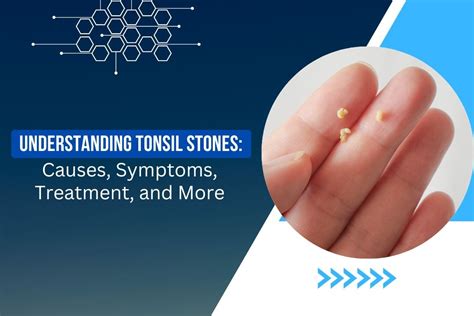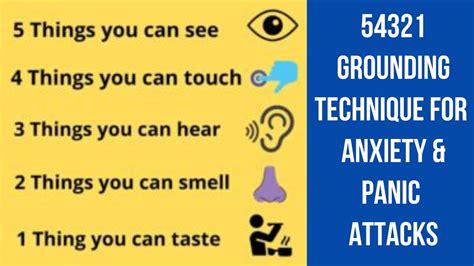Intro
Discover 5 effective ways to alleviate tonsil stones sore throat, including natural remedies, throat sprays, and hygiene practices, to help reduce discomfort and prevent future occurrences of tonsilloliths and sore throat symptoms.
Tonsil stones, also known as tonsilloliths, are small, hard deposits that form on the surface of the tonsils. They are usually white or yellowish in color and can cause a range of symptoms, including bad breath, sore throat, and difficulty swallowing. If you are experiencing a sore throat due to tonsil stones, there are several ways to ease the discomfort and reduce the symptoms. In this article, we will explore five ways to alleviate a sore throat caused by tonsil stones.
The presence of tonsil stones can be a frustrating and painful experience, especially when it comes to swallowing food and drinks. The stones can cause irritation and inflammation in the throat, leading to a sore and scratchy sensation. Moreover, the bacteria that accumulate on the surface of the tonsils can produce volatile sulfur compounds, which can cause bad breath and make social interactions uncomfortable. Fortunately, there are several remedies and treatments that can help ease the symptoms of tonsil stones and alleviate a sore throat.
Tonsil stones can be caused by a variety of factors, including poor oral hygiene, large tonsils, and a diet high in dairy products and sugar. When food particles and debris accumulate on the surface of the tonsils, they can become trapped and form small, hard deposits. Over time, these deposits can grow and cause symptoms such as bad breath, sore throat, and ear pain. If left untreated, tonsil stones can lead to more serious complications, such as tonsillitis and peritonsillar abscess. Therefore, it is essential to address the issue promptly and explore ways to ease the symptoms.
Understanding Tonsil Stones

Tonsil Stones Symptoms
The symptoms of tonsil stones can vary from person to person, but common signs include: * Bad breath * Sore throat * Difficulty swallowing * Ear pain * Fever * White or yellowish deposits on the tonsils It is essential to recognize these symptoms and seek medical attention if they persist or worsen over time.Treatment Options

- Gargling with salt water to reduce inflammation and kill bacteria
- Using a waterpik to remove debris and stones from the tonsils
- Taking antibiotics to treat underlying infections
- Undergoing a tonsillectomy to remove the tonsils entirely
- Practicing good oral hygiene to prevent the formation of new stones
Home Remedies
In addition to medical treatments, there are several home remedies that can help ease the symptoms of tonsil stones and alleviate a sore throat. These include: * Gargling with apple cider vinegar to reduce inflammation and kill bacteria * Drinking plenty of water to stay hydrated and thin out mucus * Eating foods high in fiber to help remove debris from the tonsils * Avoiding dairy products and sugar to reduce the formation of new stones * Getting plenty of rest to help the body recover from illnessEasing a Sore Throat

- Taking over-the-counter pain medications such as acetaminophen or ibuprofen
- Gargling with salt water to reduce inflammation and kill bacteria
- Using a humidifier to add moisture to the air and soothe the throat
- Drinking warm liquids such as tea or broth to help soothe the throat
- Avoiding irritants such as smoke and pollution to reduce inflammation
5 Ways to Ease Tonsil Stones Sore Throat
Here are five ways to ease a sore throat caused by tonsil stones: 1. **Stay hydrated**: Drinking plenty of water can help thin out mucus and reduce the formation of new stones. 2. **Gargle with salt water**: Gargling with salt water can help reduce inflammation and kill bacteria that accumulate on the surface of the tonsils. 3. **Use a humidifier**: Adding moisture to the air can help soothe the throat and reduce inflammation. 4. **Avoid irritants**: Avoiding irritants such as smoke and pollution can help reduce inflammation and alleviate symptoms. 5. **Practice good oral hygiene**: Practicing good oral hygiene can help prevent the formation of new stones and reduce the symptoms of tonsil stones.Prevention

Dietary Changes
Making dietary changes can help prevent the formation of tonsil stones and reduce the symptoms. Here are some dietary tips: * Eat foods high in fiber such as fruits and vegetables * Avoid dairy products and sugar * Drink plenty of water to stay hydrated * Avoid processed foods and opt for whole foods instead * Limit intake of acidic foods and drinksConclusion and Next Steps

Final Thoughts
Tonsil stones are a common condition that can cause a range of symptoms, including bad breath, sore throat, and difficulty swallowing. By understanding the causes and symptoms of tonsil stones, you can develop an effective treatment plan and reduce the risk of complications. Remember to practice good oral hygiene, make dietary changes, and use home remedies to ease the symptoms and prevent the formation of new stones.What are tonsil stones?
+Tonsil stones, also known as tonsilloliths, are small, hard deposits that form on the surface of the tonsils.
What are the symptoms of tonsil stones?
+The symptoms of tonsil stones include bad breath, sore throat, difficulty swallowing, ear pain, and fever.
How can I prevent tonsil stones?
+Preventing tonsil stones involves practicing good oral hygiene, making dietary changes, and avoiding irritants such as smoke and pollution.
What are some home remedies for tonsil stones?
+Some home remedies for tonsil stones include gargling with salt water, using a waterpik, and drinking plenty of water to stay hydrated.
When should I seek medical attention for tonsil stones?
+You should seek medical attention if you are experiencing persistent or severe symptoms, such as difficulty swallowing, ear pain, or fever.
We hope this article has provided you with valuable information and insights on tonsil stones and how to ease a sore throat. If you have any further questions or concerns, please do not hesitate to comment below or share this article with your friends and family. Remember to take care of your oral health and seek medical attention if you are experiencing persistent or severe symptoms.
